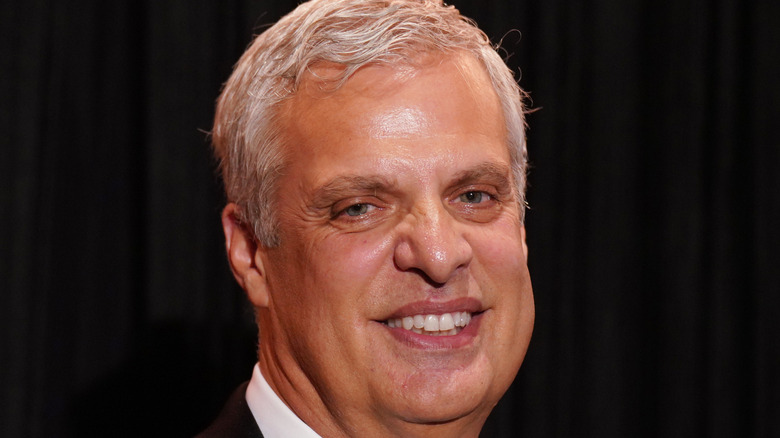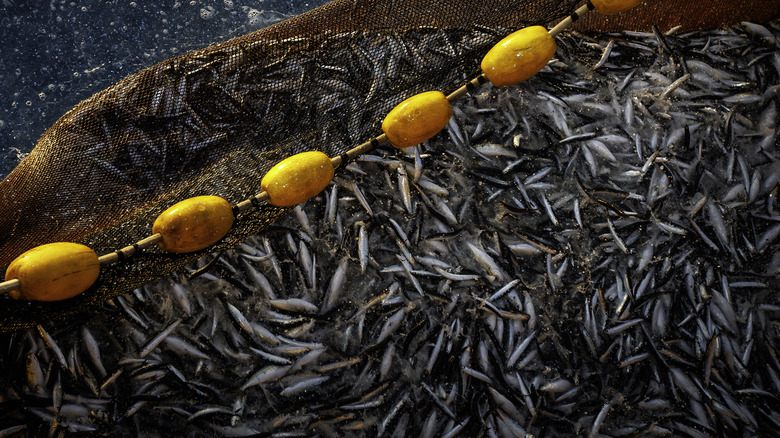Eric Ripert's Go-To Resource To Keep Up With Sustainable Seafood
Eric Ripert knows a thing or two about seafood. His New York seafood restaurant, Le Bernardin, has three Michelin stars, more James Beard Awards than any other New York City restaurant, and has been ranked La Liste's best restaurant in the world for three years running. It's also held onto the New York Times' top restaurant rating for over thirty years.
Naturally, Ripert puts a lot of thought into the seafood that graces Le Bernardian's tables. But quality isn't Ripert's only concern; he's also a vocal advocate for ethical and sustainable fishing. An estimated 85% of fish stocks worldwide are overfished or fully exploited, threatening fish populations. Overfishing threatens coral reefs and often results in bycatch, the term used for other species — including endangered animals — that get caught up in nets. There's a human cost, too — it depletes fish populations that struggling communities rely on for food.
Buying sustainably can be pricy; as Vice Chairman of City Harvest, a nonprofit focused on food insecurity, Ripert acknowledges that sustainable food isn't accessible to everyone. "[S]ometimes it's too expensive," he told The Harvard Crimson. "But if you have that luxury, I think it's very important to support people who have good practices." But money isn't the only barrier consumers face — even learning how to shop sustainably can be tricky. In his new cookbook, "Seafood Simple," which was released on October 3, Ripert explains that he relies on NOAA, the National Oceanic and Atmospheric Administration for guidelines and up-to-date information on the fishing industry.
How Ripert does his research
Ripert knows that buying sustainably takes work. "While sourcing organic produce and humanely raised land animals is relatively easy, identifying sustainable fish can be more difficult," he told Saveur in 2018. The U.S. is a world leader in sustainable seafood practices and holds fisheries to strict standards, but 90% of the seafood that Americans eat annually comes from countries where laws are more lax. Fish populations are constantly changing, and it can be hard to keep track. Populations that were depleted can bounce back; species that are plentiful in one area might be struggling in others.
According to NPR, about 80% of Americans care about sustainability when considering their seafood purchases and for them too, NOAA can be an invaluable resource. The website provides resources for consumers, in-depth profiles on North American seafood species, and even recipes. There's information for teachers, students, and people seeking fishing permits. Activists and researchers interested in sustainable fishing can even use the website to apply for grants.
NOAA isn't the only resource available to Americans wishing to make more conscientious choices. Ripert recommends others, too. Monterey Bay Aquarium's Seafood Watch buyer's guide provides reports on a wide variety of species, making it easy for consumers to get recommendations. The NRDC or National Resources Defense Council provides buyer's guides and Oceana also campaigns for responsible fishing. But Ripert warns that these can have discrepancies, so he always cross-checks information through NOAA.

